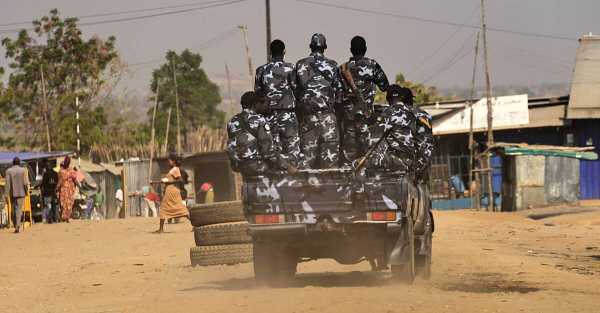The State and Justice Departments disagree about what to do with more than half a billion dollars after a French company pleaded guilty to aiding militants in war-torn Syria.
Listen to this article · 8:49 min Learn more
- Share full article

A refugee camp in Iraq’s Duhok province for displaced Yazidis in 2021.
Biden administration officials are divided over what to do with $687 million in assets a French company forfeited after pleading guilty to aiding terrorist groups like the Islamic State, according to people familiar with internal deliberations.
The dispute, which has pit the State Department against the Justice Department, raises a tangle of legal, moral and policy problems about the financial implications of executive branch officials handling an unusually large amount of money that has not gone through the usual process of being appropriated for a specific purpose by Congress.
Among the points of contention: whether the administration can or should funnel some of the money toward helping international victims of ISIS, most of whom are still in Syria or are refugees elsewhere in the Middle East.
Adding to the complications, a group of ISIS victims now living in the United States also want a share of the assets. They are represented by Amal Clooney, a prominent human rights lawyer who is married to George Clooney, the actor who is helping raise money for Mr. Biden’s re-election campaign, and by Lee Wolosky, a former Biden administration official.
The vast sum at stake comes from the first prosecution of a corporation for conspiring to provide material support to a terrorist organization. In 2022, the French building materials giant Lafarge pleaded guilty to paying off ISIS and another terrorist group in Syria, the Nusra Front, in 2013 and 2014, to ensure that it could keep operating a plant in the region.
When the civil war in Syria broke out, Lafarge had just built an expensive cement factory in the northern part of that country. Officials at the company struck the unusual agreement with militant groups, court papers said, in part so it would be in a position to profit off the need to rebuild in Syria when the war ended.
We are having trouble retrieving the article content.
Please enable JavaScript in your browser settings.
Thank you for your patience while we verify access. If you are in Reader mode please exit and log into your Times account, or subscribe for all of The Times.
Thank you for your patience while we verify access.
Already a subscriber? Log in.
Want all of The Times? Subscribe.
SKIP ADVERTISEMENT
Source: nytimes.com



